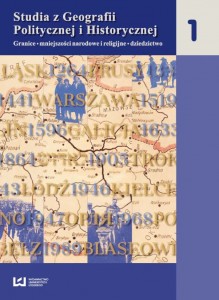Wielkie posiadłości ziemskie w Rzeczypospolitej Obojga Narodów i ich wpływ na dzisiejsze środowisko antropogeniczne
Large landed estates in the Polish-Lithuanian Commonwealth and its impact on today’s anthropogenic environmental
Author(s): Mariusz KowalskiSubject(s): Essay|Book Review |Scientific Life
Published by: Wydawnictwo Uniwersytetu Łódzkiego
Keywords: Rzeczpospolita Obojga Narodów; wielka własność ziemska; terytorializacja władzy; krajobraz antropogeniczny; Polish-Lithuanian Commonwealth; large landed property, territorialisation of power, the current anthropogenic landscape,
Summary/Abstract: Artykuł podkreśla znaczenie wielkich posiadłości ziemskich w ramach systemu polityczno-ustrojowego i społeczno-gospodarczego Rzeczypospolitej Obojga Narodów. Zwrócono również uwagę na utrzymujące się przez stulecia antropogeniczne formy przestrzenne, będące efektem szczególnie silnego oddziaływania wielkich posiadłości na kształt życia społeczno-gospodarczego. Wpływ ten można dziś dostrzec w sposobie zagospodarowania przestrzeni oraz w formach i przebiegu licznych zjawiskach o charakterze politycznym, kulturowym i gospodarczym w Polsce oraz u jej wschodnich sąsiadów. The heritage of the Polish-Lithuanian Commonwealth of Both Nations exerts until today an influence on the shape of the geographical environment of Poland and her eastern neighbours, this fact often not being noticed. A particularly strong imprint on the development of spatial structures results from the existence and functioning of the large feudal property. In the period of the Commonwealth, given the far-reaching decentralisation of authority in the country, such large landed properties enjoyed broad judicial and administrative, as well as economic autonomy. Their position and separate character were in many cases strengthened through the status of principality, entail or county. Under several aspects they reminded of the duchies existing at more or less the same time in the German Reich. Liquidation of the Commonwealth in 1795 brought limitations to the autonomy of the landed estates within the framework of the occupying powers, Russia, Prussia and Austria. They continued, though, to fulfil important administrative, cultural and economic functions. Until peasants were affranchised the landed estates had been the primary organiser of economic life and local administration on rural areas. After the affranchising acts the estates shrunk to the manor farms, employing farmhands, but they still played an essential socio-economic role. Their importance was particularly high under the Prussian occupation, where affranchising had limited dimensions, leaving in the hands of the manor farm owners a significant part of the estate from before (the Prussian way toward the capitalism in farming). In the course of introduction of the socialist system after the World War II, the majority of the landed estates and manor farms were transformed into the state farms, which dominated the landscape of the Polish countryside in many areas of the country. The thus described role and significance of the large landed estates allows for considering them as an essential and characteristic element of the political and systemic, as well as socio-economic, order of the Commonwealth, exerting an influence through the consequences of its existence also on the contemporary forms of geographical environment.
Journal: Studia z Geografii Politycznej i Historycznej
- Issue Year: 2012
- Issue No: 01
- Page Range: 113-138
- Page Count: 26
- Language: Polish

